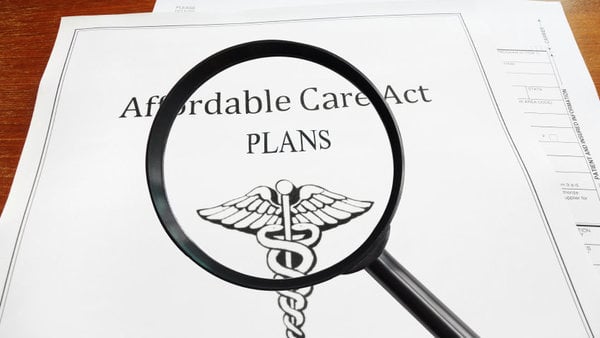 Because of the way the health care law is structured, funding the CSRs at this point would subject policyholders to higher premiums. (Photo: Getty Images)
Because of the way the health care law is structured, funding the CSRs at this point would subject policyholders to higher premiums. (Photo: Getty Images)
As debate rages in Congress over cost-sharing reductions for insurers under the Affordable Care Act, one liberal group is now on the opposite side of Democrats' previous fight to restore them.
According to a report in The Hill, the Center on Budget and Policy Priorities is now opposing cost-sharing reductions, which had been canceled by the Trump Administration and resulted in increases in premiums for health care policies under the ACA.
Recommended For You
Democrats have been struggling to restore them to stabilize the insurance market, but the Center has published an analysis that argues against funding the CSRs—which are currently at the center of a bipartisan bill aimed at stabilizing the ACA marketplaces. The bill could be added to a government funding measure this month.
According to the report, the analysis has found that because of the way the health care law is structured, funding the CSRs at this point would subject policyholders to higher premiums. After Trump canceled the CSRs last October, insurers set higher premium rates to compensate, and as a result the subsidies paid to lower-income ACA enrollees so that they could afford coverage went up.
But if the CSRs are funded after all, the subsidies would go down, thus putting policyholders on the hook to pay higher premiums.
Aviva Aron-Dine, a former Obama administration health official who wrote the analysis, says in the report that "restoring CSR payments would likely harm millions of people" by increasing their share of costs. While funding the CSRs would assist those whose incomes are too high to qualify for subsidies, Aron-Dine argues that is not enough to justify making the payments.
Instead, she says that what would help more would be to block the Trump administration's actions to open up skimpier, cheaper health plans known as short-term plans; those could woo healthy people away from ACA policies, thus leaving a higher concentration of sick customers buying coverage from the ACA exchanges and raising costs.
Democrats in the Senate argued over whether making the CSR payments is actually detrimental to those seeking coverage, and they have come up with a plan to both fund the CSRs and also increase the subsidies to prevent anyone's costs from going up. According to Aron-Dine, that's a good solution.
Republicans, however, are undoubtedly going to oppose any rise in subsidies, so the Democrats' two-pronged approach to solving the problem will have a tough time going anywhere. However, the GOP is considering funding the CSR payments this month in the government funding bill, in addition to other stability funding known as reinsurance.
It also doesn't look good for Democrats suddenly opposing restoring the CSRs, when they've been arguing for just that for months and criticizing Trump roundly for canceling them in the first place. In addition, some Democrats say the CSRs should be restored anyway, since that would provide more stability for the market. The question is, how will people afford the higher premiums that would result if premium subsidies are cut and no further action is taken to help them?
© 2025 ALM Global, LLC, All Rights Reserved. Request academic re-use from www.copyright.com. All other uses, submit a request to [email protected]. For more information visit Asset & Logo Licensing.







